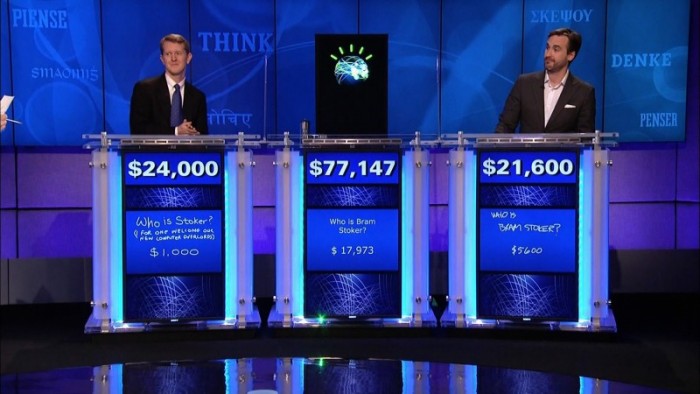If there is one thing that educators, business leaders and policymakers broadly agree on, it’s that skills in technology, science and math are essential to our future economic potential. Indeed, with countries around the world now prioritizing the development of so-called “e-skills,” it’s no surprise that new measures to address Canada’s skills gap were among the signature initiatives in the federal government’s new budget last week. As governments strive to re-energize growth and job creation, policymakers in all countries are confronting key questions about how best to equip today’s workforce with the skills to be successful in a world of intense technological change and global competition.
Are governments, educational institutions and private sector really doing enough to close the growing gap in skills in the data-and-science-driven industries of the future? And might we be vastly underestimating the depth of the social and economic dislocations we could face as technology reshapes the world we live in?
Not that long ago, you may recall that IBM’s Watson—one of the world’s most sophisticated supercomputers—handily defeated two trivia superstars in a round of jeopardy. In fact, the contest wasn’t even close, a reality which should give every white collar worker today pause to think about how technology-driven automation and artificial intelligence could affect our future.

As MIT economists Eric Brynjolfsson and Andrew McAfee argued so persuasively in their new book Race Against the Machine, we need to understand that the artificial intelligence revolution is beginning to do to white collar jobs what robotics and offshoring has already done to blue collar jobs in Europe and North America (check out McAfee talking about this at TED).
Computers are already replacing workers with only moderate cognitive or manual skills in many industries—people who perform routine tasks such as product assembly, process monitoring, administrative support, basic information brokering and simple software coding. Even boiler plate legal work can be done by machines, just as X-Rays scanned into computers can be interpreted by medical professionals on the other side of the world. If you fear your job may be at risk, check out Gary Marcus’ recent piece in the New Yorker.
If there is good news, it’s that there are endless creative uses for technology that computers can neither invent nor automate, which is why young people today must be encouraged to see technology through a much broader lens and as much more than basic IT skills. The ability to write code or manipulate statistical data are hugely desirable skills, to be sure. But the ability to envision how complex processes and institutions can be reinvented using technology is equally valuable, and this is one area where people with more of a social-science persuasion have a potential advantage.
Society needs to redefine what a career in technology means. Most people think of the back office and the quintessential IT Guy, an image that hardly helps advertise the exciting potential of IT-related careers. We need a much more expansive vision and understanding of what IT-related careers entail particularly when it comes to applications of technology in fields like education, health or energy, and of course how IT can be leveraged to operate successful companies in today’s environment. Business need cross-disciplinary thinking more than ever and people with the ability to fuse technology literacy with leading-edge research from psychology, sociology and economics, for example.
Technology is underpinning a profound shift in our society — a shift that could be analogous to the impact the rise of the printing press had on the system of feudalism that dominated European society some five centuries ago. We have already seen profound changes in the way we work, the way we communicate and the way we inform, educate and entertain ourselves. Major industries have been upended and reshaped by technology and more transformative changes are looming in everything from healthcare, education and science, to the way we produce and consume energy, to the nature of government and democracy.
There is little doubt that we will need to dramatically swell the ranks of coders and data scientists to successfully navigate these changes in society. But we will also require people with softer skills, especially those who can bring a multidimensional understanding of the social uses of technology. Bringing disciplines together can foster a deeper appreciation for technology across the population and help seed creative new applications in every sector. It might also be our best hope of addressing the jobs crisis in North America and Europe, one that stands to get a lot worse if we don’t broaden our thinking about the kind of skills required for an age where machines outsmart humans.